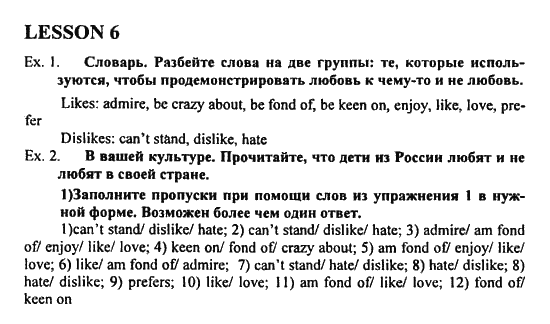Темы проектов по английскому языку для 6 класса
При желании написать проект у школьников часто возникает вопрос, какую тему придумать или где найти подходящую. Мы подготовили ряд тем для проведения исследований и создания проектов и проектных работ по иностранному (английскому) языку, которые можно упрощать или усложнять на свое усмотрение и использовать как индивидуально, так и для работы группы.
Мы предлагаем шестиклассникам выбрать интересную тему проекта по английскому языку для 6 класса по разным направлениям исследований и выбранной тематике.
В данном разделе мы собрали актуальные темы творческих проектов по английскому языку для 6 классов о Великобритании, ее городах и достопримечательностях, праздниках, погоде, знаменитых людях, сказках, фольклоре, литературе, транспорте, спорте, истории, традиционных блюдах и т.
Кроме Великобритании в темах проектов по английскому языку в 6 классе подразумевается исследование других англоязычных стран, таких, например, как США и Австралия. Есть темы проектов как с английской, так и русской формулировками.
Довольно интересными для учащихся 6 классов будут темы индивидуальных исследовательских проектов по английскому языку на знакомство с великими британскими путешественниками, знаменитыми людьми Великобритании и ее живописью, с историей английского автобуса и Лондонского зоопарка.
Темы индивидуальных исследовательских проектов по английскому языку для учеников 6 класса:
Books in our life.
British Coins (Британские монеты).
Сharity fair (Благотворительная ярмарка)
Daily routine
Do you know Russia and the Russian people?
Faces of London (Лица Лондона)
Mark Twain
My letter to Grfndfather Frost.
Pirates
Royal Family
Space Encyclopedia (Космическая энциклопедия).
Thanksgiving day — День благодарения.
The commonwealth of Australia
The Day I was born
The ideal house I would live in.
The passport of fantastic animals.
We are responsible for those whom we have tamed (Мы ответственны за тех, которых мы приручили).
Welcome to Russia
Английские колыбельные песни из сборника «Mother Goose Rhymes» и их переводы на русский язык.
Англичане и погода (The English and the weather).
Биг Бен (Big Ben)
Великие британские путешественники.
Взаимоотношения родителей и детей.
Вильям Тернер (William Turner)
Вымирающие животные.
Город местоимений
Грамматические сказки.
Граффити — искусство или вызов обществу?
День независимости США.
Детский фольклор
Достопримечательности Лондона.
Достопримечательности Нью-Йорка.
Живопись Англии (Painting in England).
Животные в английских пословицах и поговорках и их русские эквиваленты.
Знаменитые люди Великобритании.
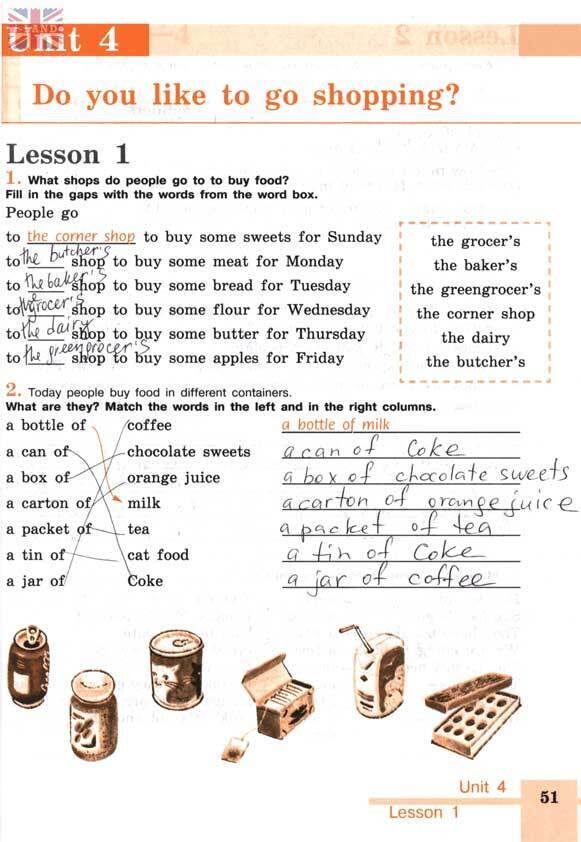
Из мира словарей
Использование названий животных во фразеологизмах, пословицах и поговорках английского языка в сравнении с русским и латинским языками.
Исследование сказки «Красная Шапочка» (на английском языке).
История английского автобуса
История Манхэттена
История общественного транспорта Англии.
История песен «В лесу родилась ёлочка» и «Happy Birthday».
Климат Великобритании (The climate of Great Britain)
Книги в нашей жизни
Лондонский зоопарк (London Zoo).
Многозначность предлогов в английском языке.
Мое летнее приключение (My summer adventure)
Мое любимое литературное произведение (My favourite literary novel).
Мой дом — моя крепость
Мой любимый литературный герой (My favourite literary hero).
Мой любимый фильм
Мой стиль
Московский зоопарк.
Моя будущая профессия
Моя семья
Музей Мадам Тюссо
Новый год в Англии и России.
Новый год в Шотландии
Образ животных в английских и американских фразеологизмах.

Открытка моему другу.
Пасха
Перевод художественного произведения как один из методов изучения иностранного языка.
Праздники в Англии «St. Valentine’s Day».
Природа — главная страсть британцев
Рождество и Новый год в Великобритании.
Спорт Великобритании (Sports in Britain)
Стихи о животных и птицах на английском языке.
Страшные истории (Spooky stories).
Суеверия в Великобритании и России.
Традиционный английский Рождественский пудинг.
Увлечения в моей семье
Человек (черты характера и поступки) в крылатых фразах, пословицах и поговорках английского и русского языков.
Что я знаю о Лондоне
Чудеса природы (Wonders of Nature)
Язык SMS.
Рекомендуем перейти к:
теме проекта по английскому языку
Если Вы хотите разместить ссылку на эту страницу, установите на сайте, блоге или форуме один из кодов:
Код ссылки на страницу «Темы проектов по английскому языку 6 класс»:
<a href=»http://tvorcheskie-proekty. ru/node/499″ target=»_blank»>Темы проектов по английскому языку для 6 классов</a>
ru/node/499″ target=»_blank»>Темы проектов по английскому языку для 6 классов</a>
Код ссылки на ваш форум:
[URL=http://tvorcheskie-proekty.ru/node/499]Темы исследовательских работ по английскому языку 6 класс[/URL]
Если страница Вам понравилась, поделитесь в социальных сетях:
Промежуточная аттестация по английскому языку для 6 класса, ФГОС
Пояснительная записка1. Назначение работы
Промежуточная аттестация в 6 классе проводится в форме теста. Письменная работа ставит своей целью контроль уровня сформированности иноязычной коммуникативной компетенции обучающихся при осуществлении такого вида речевой деятельности как чтение, а также контроль овладения лексическими и грамматическими навыками за курс 6 класса.
2.Структура работы
Работа состоит из 2 заданий: чтение и задание на проверку лексических и грамматических навыков.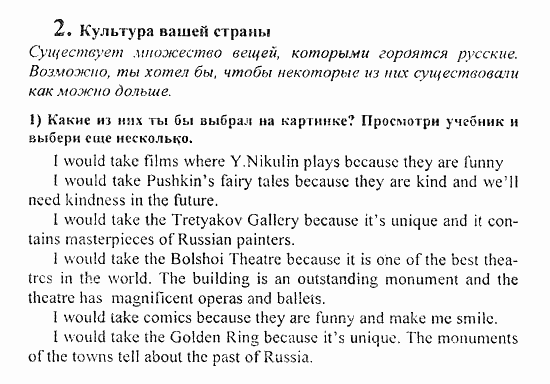
3.Время выполнения работы
Время, отводимое на написание этой работы: 45 минут.
4.Система оценивания отдельных заданий и работы в целом
Максимальное количество баллов, которое может получить обучающийся – 20 б.
Каждый правильный ответ в задании оценивается в 1 балла. За неверный ответ или его отсутствие выставляется 0 баллов. Исправления, сделанные обучающимися, ошибкой не считается. Работа оценивается по пятибалльной системе.
Критерии оценивания:
«5» — 19-20 б.
«4» — 16-18 б.
«3» — 13-15 б.
5.Ключи к работе.
1 вариант
1 задание
1-T 2-F 3-F 4-F 5-T
2 задание
1-a 2-a 3-c 4-b 5- a 6-b 7-b8-c 9-a 10-a 11-c 12-b 13-b 14-b 15-a
2 вариант
1 задание
1-F 2-T 3-F 4-F 5-T
2 задание
1-b 2-a 3-c 4-c 5- b 6-b 7-b8-b 9-a 10-a 11-c 12-d 13-c 14-c 15-b
3 вариант
1 задание
1-T 2-F 3-T 4-F 5-T
2 задание
1-b 2-a 3-b 4-b 5- b 6-c 7-c8-b 9-b 10-c 11-b 12-a 13-b 14-b 15-a
4 вариант
1 задание
1-T 2-F 3-T 4-F 5-f
2 задание
1-c 2-a 3-c 4-a 5- a 6-b 7-b8-c 9-a 10-c 11-c 12-a 13-b 14-b 15-c
6 класс
1 вариант
Задание 1. Чтение. Прочитайте текст и отметьте верные предложения буквой (T) и неверные предложения буквой (F).
Чтение. Прочитайте текст и отметьте верные предложения буквой (T) и неверные предложения буквой (F).
My friend
Tanya is my classmate. She is a Russian girl. She is in the fifth form. She is a student of School Number 44.
Tanya is young, she is twelve years old. She is a bit taller than me. She looks like her mother. She is pretty. Tanya is a thin girl with large brown eyes. Her hair is fair, long and straight. Her face is oval and her nose is turned-up. She wants to look like all the models.
Tanya likes wearing smart things: bright blouses and skirts. She is always well dressed. She doesn’t like jeans.
Tanya is a good friend. She never gossips. Everyone loves her. She is clever, honest and kind. She always tells the truth. She has a good sense of humour. She knows a lot of interesting and funny stories.
She does well at school. She always does her homework. She is very good at English and math. Tanya plays the piano very well. I think she is very talented.
She always does her homework. She is very good at English and math. Tanya plays the piano very well. I think she is very talented.
I am happy to have such a friend as Tanya.
1 Tanya is in the 5 form.
2 She is a student of School Number thirty four.
3 She likes wearing bright blouses and trousers.
4 She likes jeans.
5 She is a good student.
Задание 2. Грамматика.
Выберите правильный глагол (Choosethecorrectverb).
1. They often … to the cinema.
a) go b) goes c) are going2. Tim usually … breakfast.
a) ate b)eats c) is eating
3. Mary … Cola now.
a) drink b) drank c) is drinking
4. Ben … the dog at the moment.
a) walks b) is walking c) walk
5. We … our grandparents every Sunday.
We … our grandparents every Sunday.
a) visit b) visits c) are visiting
6. He … to school yesterday.
a) goes b) went c) is going
7. My mum … many books two years ago.
a) buys b) bought c) buy
8. Тоdayis Wednesday. Yesterday was … .
a) Monday b) Thursday c) Tuesday
9. I usually go to school … foot.
a) onb) by c) in
10. К какой теме относятся следующие слова:a bookcase, a picture, a living room, a coffee table?
a) flat b) clothes с) family
11. Выберите правильный перевод: sixhundredandseventy-two
a) 662 b) 172 c) 672
12. … three rooms in my flat.
a) There is b) There are c) Are there D) Is there
13. Are you cooking now?
a) Yes, he is.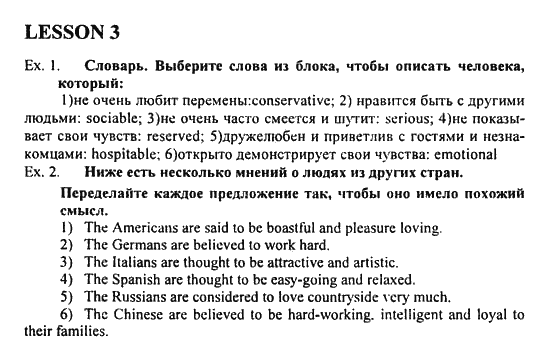 b) No I am not. c) No I am.
b) No I am not. c) No I am.
14. There are … eggs on the plate.
a) any b) some c) not
15. What do you see … the sky?
a) in b) on c) at
6 класс
2 вариант
Задание 1. Чтение. Прочитайте текст и отметьте верные предложения буквой (T) и неверные предложения буквой (F).
My flat.
My flat is on the fifth floor. It’s very comfortable. We have got all modern conveniences, such as central heating, electricity, gas, running water and a telephone. There are three rooms, a kitchen and a bathroom in my flat.
The largest room is the living room. In the middle of the room there is a big table and eight chairs round it. Opposite the window there is a wall unit with lots of books, a TV set and a DVD player. There are two comfortable armchairs and a sofa in the living room.
My room is the smallest room, but it is very cosy and bright. There is a bed, a wardrobe, a desk, an armchair and several bookshelves in my room. There is a big colourful carpet on the floor and there are blue curtains on the window. The walls in my room are light-brown and there are some posters on them.
Our kitchen is large and light. We’ve got a refrigerator, a wall cupboard and a cooker in it.
I like my room and clean it every day.
1. My living room is small.
2. A wall unit is opposite the window.
3. There are 4 comfortable armchairs and a sofa in my living room.
4. There are no posters in my room.
5. I clean my room every day.
Задание 2. Грамматика.
Выберите правильный глагол (Choose the correct verb).
1. Mark usually …tea for breakfast.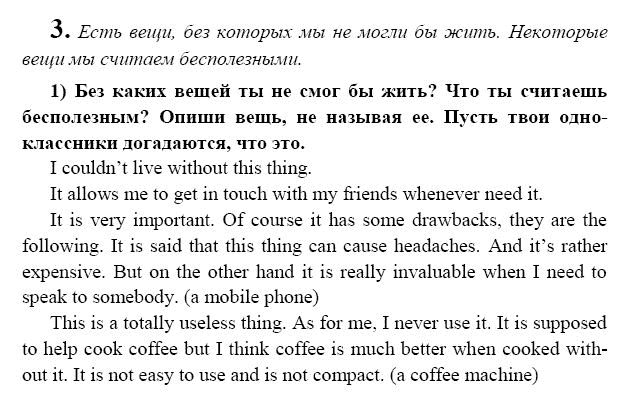
a) drink b) ) drinks c) is ) drinking
2. They often … to the park.
a) go b) goes c) are going
3. Mary … Cola now.
a) buy b) buys c) is buying
4. Ben … the dog yesterday evening.
a) walks b) is walking c) walked
5. We … our grandparents every Sunday.
a) visits b) visit c) are visiting
6. He … to school yesterday.
a) do not go b) went c) did not go
7. My granny… me many books two years ago.
a) give b) gave c) is giving
8. Тоday is Friday. Yesterday was … .
a) Saturday b) Thursday c) Tuesday
9.Who is … school?
a) at b) on c) in
10. К какой теме относятся следующие слова: asweet, acake, bread, cucumber?
a) food b) clothes с) family
11.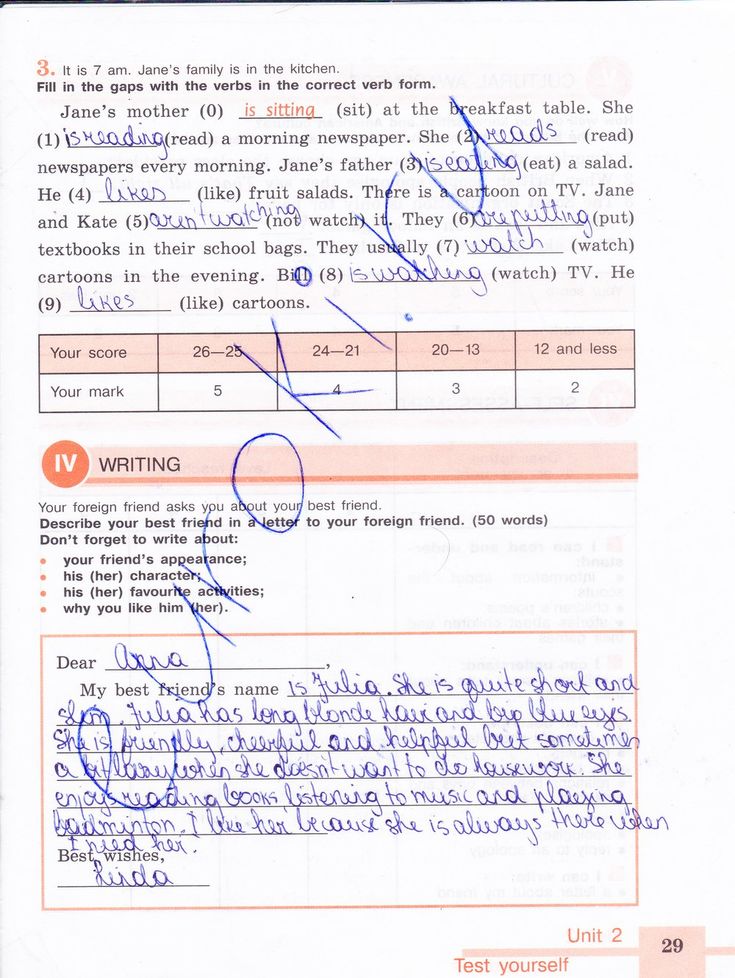 Выберите правильный перевод: nine hundred and eighty-four
Выберите правильный перевод: nine hundred and eighty-four
a) 994b) 894 c)984
12. … any milk in the glass?
a) thereis b) there are c) are there d) is there
13.Can you help me?
a) No I do not b) Yes I am c) Yes I can.
14.There are not … pens s in the box.
a) no b) some c) any
15.I have breakfast … oclock in the morning.
a) inb) atc) on
6 класс
Вариант 3
Задание 1. Чтение. Прочитайте текст и отметьте верные предложения буквой (T) и неверные предложения буквой (F).
expensive — дорогой сheap – дешевый
Food from around the world
We eat a lot of different kinds of food today. Before the 16th century, people in Europe didn’t have a lot of the things that we can eat and drink every day.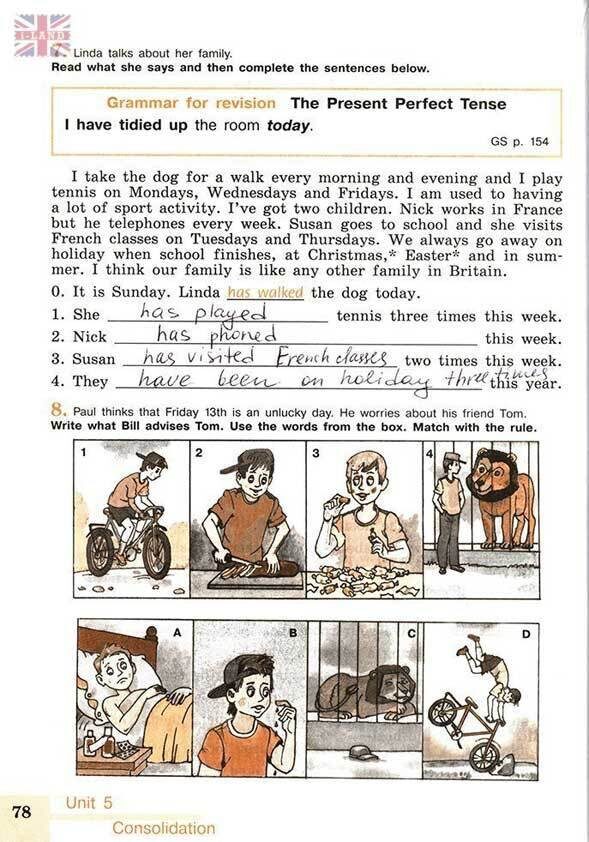
At the end of the 15th century, people from Europe started to travel to other parts of the world. They went to America, Africa and Asia. They brought back a lot of new kinds of food.
Chocolate came from Mexico. The Aztecs there drank chocolate with pepper! The Spanish brought chocolate to Europe and they were first to put sugar in it. Until the 1870s, chocolate was only a drink. The Swiss made the first bar of chocolate in 1876.
Tomatoes, peppers and avocados all came from Mexico, too. The Spanish took seeds back to Spain and started to grow the plants there. Soon they spread to other countries in Europe and then to other parts of the world. The words tomato, chocolate and avocado all come from the old Aztec language.
Potatoes came from South America. Potatoes like cold, wet weather. They grew in the mountains of Peru. Coffee came from Africa. The Turks took it to Turkey and then to Europe. Tea came from China in the 17th century. At first it was very expensive and only rich people drank it, but in the 19th century the British started to grow tea in India. They produced a lot, so it was cheap and everybody could drink it.
Tea came from China in the 17th century. At first it was very expensive and only rich people drank it, but in the 19th century the British started to grow tea in India. They produced a lot, so it was cheap and everybody could drink it.
1 Chocolate came from Mexico
2 Aztecs drank chocolate with milk .
3 At the end of the 15th century, people from Europe started to travel to other parts of the world.
4 The Turks brought avocados to Europe.
5. Spanish were first to put sugar into chocolate.
Задание 2. Грамматика.
Выберите правильный глагол (Choosethecorrectverb).
1. Ben … the dog now.
a) walks b) is walking c) walked
2. She … our grandparents every Sunday.
a) visits b) visit c) are visiting
3. I … to school yesterday.
I … to school yesterday.
a) did not go b) went c) do not go
4. My friend … to me two years ago.
a) come b) came c) is coming
5. We … our grandparents every Sunday.
a) visits b) visit c) are visiting
6. He … to school yesterday.
a) did not go b) go c) does not go
7. My mum… a new bike now.
a) buys b) bought c) is buying
8. Тоday is Sunday. Yesterday was … .
a) Monday b) Saturday c) Tuesday
9. I get … 7 oclock in the morning.
a) in b) at c) on
10. К какой теме относятся следующие слова: cold, hot, foggy, dry?
a) school b)family с) weather
11. Выберите правильный перевод: three hundred and twenty-one
a) 312 b) 321 c) 322
12. … a lot of snow in the street.
… a lot of snow in the street.
a) there is b) there are c) are there D) is there
13. Is she playing the piano?
a) Yes she is not. b) Yes she is. c) Yes she does.
14. Are there … books on the table?
a) some b) any c) not
15. I am always … time.
a) on b) to c) in
6 класс
Вариант 4
Задание 1. Чтение. Прочитайте текст и отметьте верные предложения буквой (T) и неверные предложения буквой (F).
expensive — дорогой сheap – дешевый
Food from around the world
We eat a lot of different kinds of food today. Before the 16th century, people in Europe didn’t have a lot of the things that we can eat and drink every day.
At the end of the 15th century, people from Europe started to travel to other parts of the world. They went to America, Africa and Asia. They brought back a lot of new kinds of food.
They went to America, Africa and Asia. They brought back a lot of new kinds of food.
Chocolate came from Mexico. The Aztecs there drank chocolate with pepper! The Spanish brought chocolate to Europe and they were first to put sugar in it. Until the 1870s, chocolate was only a drink. The Swiss made the first bar of chocolate in 1876.
Tomatoes, peppers and avocados all came from Mexico, too. The Spanish took seeds back to Spain and started to grow the plants there. Soon they spread to other countries in Europe and then to other parts of the world. The words tomato, chocolate and avocado all come from the old Aztec language.
Potatoes came from South America. Potatoes like cold, wet weather. They grew in the mountains of Peru. Coffee came from Africa. The Turks took it to Turkey and then to Europe. Tea came from China in the 17th century. At first it was very expensive and only rich people drank it, but in the 19th century the British started to grow tea in India. They produced a lot, so it was cheap and everybody could drink it.
They produced a lot, so it was cheap and everybody could drink it.
1 The Swiss made the first bar of chocolate.
2 Europeans broughtchocolate from Mexico.
3. Coffee came to Turkey from Africa.
4. At first only rich people drank tea, because it was very expensive .
5. The British started to grow tea in China.
Задание 2. Грамматика.
Выберите правильный глагол (Choosethecorrectverb).
1. They … to the cinema yesterday..
a) goed b) go c) went
2. Tanya usually … breakfast at 8 oclock.
a) have b is having c) has
3. Mary … Cola now.
a) drink b) drank c) is drinking
4. Mark usually …tea for breakfast.
a) drinks b) ) drink c) is drinking
5. They often … to the park.
They often … to the park.
a) go b) goes c) are going
6. Mary … a new car yesterday..
a) buy b)bough t) is buying
7. Ben … the dog at the moment.
a) walks b) is walking c) walk
8. Тоday is Monday. Yesterday was … .
a) Tuesday b) Thursday c) Sunday
9.They are … the street.
a) in b) on c) at
10. К какой теме относятся следующие слова:a sofa, ashelf , a TV set, a coffee table?
a) food b) clothes с) flat
11. Выберите правильный перевод: seven hundred and ninety -three
a) 693 b) 783 c) 793
12.What … in the room?
a) isthere b) there are c) are there D) there is
13.Does he play chess?
a) No he do not b) Yes he does c) Yes he do.